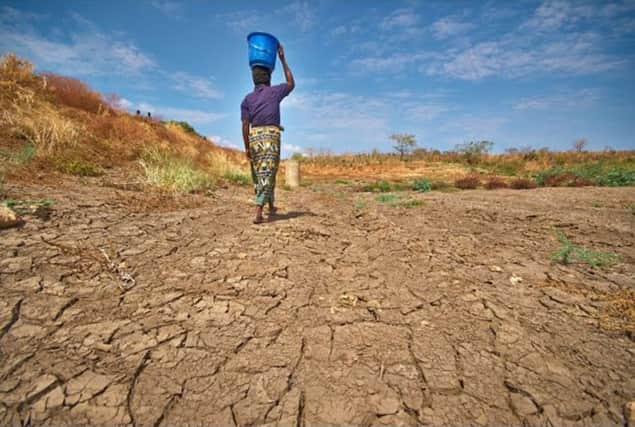We must tackle issues that create poverty


Together with our supporters in Scotland, Sciaf has helped change the lives of millions of people for the better over the past 50 years. Yet, as we mark our anniversary, global poverty still blights the lives of hundreds of millions of people, climate change makes life for many families in developing countries even harder and our global economic system continues to thrive on self-centred behaviour which often puts profit before people.
As we mark five decades of working with people in poor countries we can see that much progress has been made. Last year alone we helped more than two million people affected by hunger, poverty, war and disease. This included giving seeds, farm tools and training to families in countries like Malawi, Zambia and India so they can grow enough food to eat and earn money by selling any surplus. We provided cows, goats and chickens so they could have a steady supply of protein from milk and eggs. When the animals have offspring the new-born are either passed on to others so they too can benefit or sold so the families can buy themselves essentials like clothes, medicines and school fees.
Advertisement
Hide AdAdvertisement
Hide AdAn important part of our work is helping people become self-sufficient. Small loans and help to set up businesses selling food, clothes or handicrafts can be all that’s needed for a family to be able to buy food and put money aside for their future. Through women’s co-operatives in countries like Ethiopia and the Democratic Republic of Congo, we’ve helped thousands of families to work their way out of poverty.
Our approach – giving people a hand up, not a handout – helps those cast aside and forgotten to regain their confidence and dignity.
To make this happen we rely on the great solidarity, compassion and generosity of schools, parishes and people across Scotland. This is especially true when it comes to responding to major emergencies. Last year we helped more than 272,000 people with food, clean water, shelter and medicine in emergencies such as the Syrian refugee crisis and the Ebola outbreak in West Africa.
As part of the global Caritas family of Catholic international aid agencies we’re also helping the people of Nepal recover from the devastating earthquakes which hit their country in April and May. Our sister agency Caritas Nepal has worked with poor communities for many years and was able to respond immediately. Together, we’ve already given 22,000 families tarpaulins to make temporary shelters and will be helping 39,000 families in total in the next few months. But giving emergency aid and even long-term help will never be enough to solve the problems of hunger, poverty and injustice that we see in our world. We must tackle the issues that are keeping people poor such as unfair trade, climate change and global inequality.
Pope Francis’ recent encyclical, Laudato si: On care of our common home, pinpoints climate change as a major problem and that environmental destruction often hits the poorest people in the world the hardest. He will speak at the United Nations in New York ahead of its Sustainable Development Goals conference in September and personally deliver his urgent appeal “for a new dialogue about how we are changing the future of our planet”. There’s also a major UN climate change summit in Paris in December. These events will give world leaders clear opportunities to tackle some of the major global problems we face. They, and we, have the chance to lift millions of people out of poverty.
We must play our part too. By acknowledging that the way we live our lives affects the environment and people in developing countries, we can be part of the solution. We can hold our political leaders to account. Major climate change demonstrations around the world, including in Scotland on 28 November, will give us all the chance to demand that our leaders meeting in Paris agree a fair deal to tackle climate change. They must also help the world’s poorest people to not only cope with the terrible challenges they face, but to develop their full human potential in the future.
Only then can we create a more just world for the whole human family.
• Alistair Dutton is director of the Scottish Catholic International Aid Fund www.sciaf.org.uk